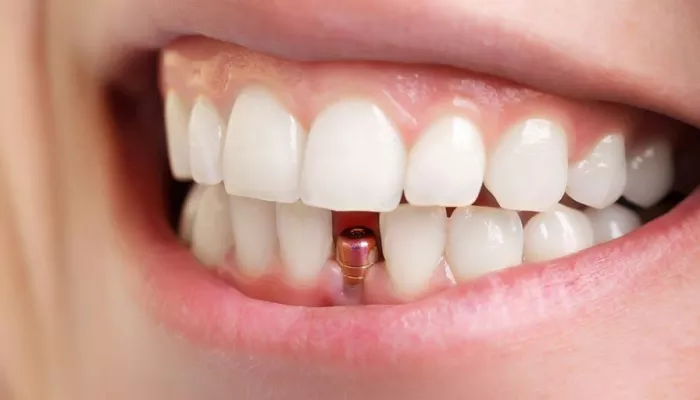Dental implants are widely regarded as one of the most durable and long-lasting solutions for replacing missing teeth. However, many patients wonder, “How long do permanent dental implants last?” The answer depends on several factors, including the quality of the implant, the patient’s oral hygiene habits, and overall health. This article explores the lifespan of dental implants, the factors that influence their durability, and how patients can maximize their longevity.
The Lifespan of Dental Implants
A Long-Term Solution
Dental implants are designed to be a permanent solution for tooth replacement. The titanium implant post, which integrates with the jawbone through a process called osseointegration, can last a lifetime with proper care. This makes implants a highly reliable and cost-effective option compared to other tooth replacement methods, such as dentures or bridges, which may need replacement every 5 to 15 years.
The Crown’s Lifespan
While the implant post itself is highly durable, the crown (the visible part of the implant) may need replacement after 10 to 15 years due to normal wear and tear. Crowns are typically made from materials like porcelain or ceramic, which are strong but not indestructible. Regular dental checkups can help monitor the condition of the crown and ensure timely replacement if necessary.
Factors That Influence Implant Longevity
Oral Hygiene Practices
Proper oral hygiene is critical to the longevity of dental implants. Just like natural teeth, implants require regular brushing, flossing, and professional cleanings to prevent plaque buildup and gum disease. Poor oral hygiene can lead to peri-implantitis, a condition similar to gum disease that can cause implant failure.
Bone Density and Quality
The success of a dental implant depends on the quality and density of the jawbone. Patients with sufficient bone volume are more likely to achieve successful osseointegration, which ensures the stability and longevity of the implant. In cases where bone density is insufficient, bone grafting may be required to provide a solid foundation for the implant.
Overall Health and Lifestyle
A patient’s overall health and lifestyle choices can significantly impact the lifespan of dental implants. Conditions like diabetes or autoimmune disorders may slow healing and increase the risk of complications. Additionally, habits like smoking or excessive alcohol consumption can compromise the success of the implant by impairing blood flow and delaying healing.
Skill of the Dental Professional
The expertise of the dentist or oral surgeon performing the implant procedure plays a crucial role in its success. A skilled professional will ensure proper placement, alignment, and aftercare, all of which contribute to the implant’s longevity.
Choosing an experienced and qualified dental provider is essential for achieving the best outcomes.
Maintaining Dental Implants for Longevity
Regular Dental Checkups
Routine dental visits are essential for monitoring the health of dental implants. During these checkups, the dentist can assess the condition of the implant, crown, and surrounding tissues, identifying any potential issues early. Professional cleanings also help remove plaque and tartar that cannot be eliminated through regular brushing and flossing.
Proper Oral Hygiene
Maintaining excellent oral hygiene is key to ensuring the longevity of dental implants. Patients should brush twice a day with a soft-bristled toothbrush and use floss or interdental brushes to clean around the implant. Antimicrobial mouthwashes can also help reduce bacteria and prevent infection.
Avoiding Harmful Habits
Certain habits can compromise the durability of dental implants. Smoking, for example, reduces blood flow to the gums and bone, impairing healing and increasing the risk of implant failure. Similarly, chewing on hard objects like ice or pens can damage the crown or abutment. Patients should avoid these habits to protect their implants.
Signs of Potential Implant Issues
Pain or Discomfort
While some discomfort is normal immediately after the implant procedure, persistent pain or discomfort may indicate a problem. This could be a sign of infection, improper healing, or implant failure. Patients experiencing ongoing pain should consult their dentist promptly.
Swelling or Inflammation
Swelling or inflammation around the implant site may indicate peri-implantitis or an infection. Early intervention is crucial to prevent further complications and preserve the implant.
Loose Implant or Crown
A loose implant or crown is a clear sign of a problem. This could be due to improper osseointegration, damage to the abutment, or wear and tear on the crown. Immediate dental attention is necessary to address the issue and prevent further damage.
The Role of Technology in Implant Longevity
Advanced Imaging Techniques
Modern imaging techniques, such as 3D cone beam computed tomography (CBCT), allow dentists to plan implant placement with precision. This reduces the risk of complications and ensures optimal positioning for long-term success.
High-Quality Materials
The materials used in dental implants, such as medical-grade titanium and high-strength ceramics, are designed for durability and biocompatibility. These materials ensure that implants can withstand the forces of chewing and biting while integrating seamlessly with the jawbone.
Conclusion
Dental implants are a durable and long-lasting solution for replacing missing teeth. With proper care, the implant post can last a lifetime, while the crown may need replacement after 10 to 15 years. Factors such as oral hygiene, bone density, overall health, and the skill of the dental professional all play a role in determining the lifespan of dental implants. By maintaining excellent oral hygiene, attending regular dental checkups, and avoiding harmful habits, patients can maximize the longevity of their implants and enjoy the benefits of a restored smile for years to come.

